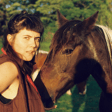
Permaculture on the Spectrum with Anna Matilda
Me ranting about Couple Power and the Urban Nanna being brilliant. May all the single, neurospicy permies find ample inspiration in today’s interview with Anna Matilda! Teacher of traditional skills, crafts and non-judgey sustainability. Anna is a breath of fresh air in the stale bedchamber of the status quo, sharing openly about how she does permaculture solo, in the city, in a rental property, with limited energy and Captain Anxiety occasionally taking the wheel.
Mistakes as teachers
Out ya come, Captain Anxiety
Feeling out of step with the whole world
The stress and physical fallout of masking
Personal energy that can be budgeted
The Fuck It Wave
FYI: You don’t need a compost toilet or a goat
Guide Beside learning (Nanna education)
Is permaculture uniquely attractive to people on the spectrum?
For the single women renters!
Spoon Theory
Building community with a capital C
Giving and receiving
Banking energy and goodwill in people, in community
Community as forest
Skills as security
Mudhuts Theory
Revelling in knowing nothing
Can we change?
Swedish wisdom ~ lagom & mysig
Japanese wisdom ~ kintsugi & shishiko embroidery
🧙♀️ LINKY POOS
Anna’s new book is out now! Everyday Permaculture ~ Anna Matilda



















